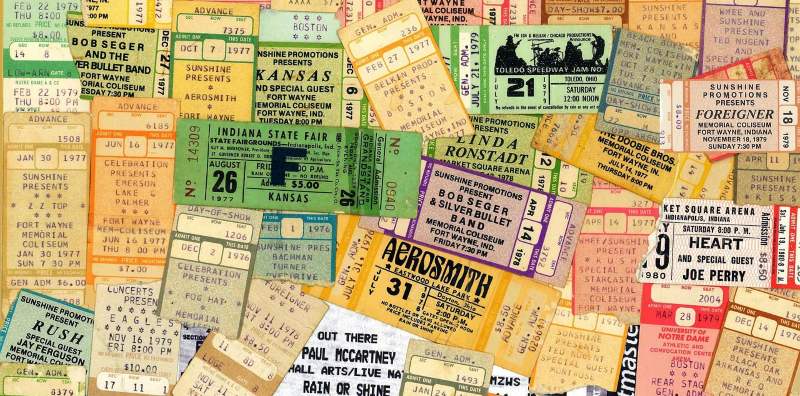
This Week’s Insights: The costs of fun (arts tickets compared)… Too much audience in Edinburgh?… When the audience thinks it knows more than the artists?… Do museums need to be more like theme parks?… Can the 1940s teach us about audience for culture?
- Arts Tickets Are Too Expensive? Let’s Compare: One of the reasons people don’t go to the arts? High ticket prices. But a survey across various arts, entertainment and sports activities gives some perspective: “Those who claim that a night at the opera is only for the elite should know that attending a top-of-the-range gig is nearly as pricey: an average opera ticket in London costs £81 ($103), compared with a global average of $96 for the 50 most-lucrative music tours. And the Royal Opera House in London boasts that 30% of its seats go for £35 or under – but good luck finding that sort of deal for Bruce Springsteen or Jennifer Lopez.” There’s a helpful chart that makes the comparisons clear.
- The Edinburgh Fringe Is Hugely Successful. But Is There Too Much Audience? It’s actually a question more and more popular arts events and venues ought to be asking. Just think about blockbuster museums where you can’t move in some galleries. But back to Edinburgh: “It’s not just the ever-growing Fringe: the International, Film, and Book Festivals are expanding, too. But yes, the Fringe is the biggest issue: it regularly sets attendance records and is now Scotland’s most lucrative event. But as it continues to surge, the side-product problems are causing worry among residents, campaigners, and the government: “It’s clearly not sustainable, but on several levels. The question that everyone is asking is: is growth the only metric of success you have?”
- When The Audience Is Everything, What Happens When They Disagree With The Artists? Online communities have gained huge influence in recent years, and they’re ever more insistent on making their opinions heard. Now they’re building campaigns around “correcting” what they see as artistic errors. “A depressingly large number of these campaigns are defined by grievances against women and minorities, and by fury at Hollywood for attempting to make long-standing franchises sustainable by amplifying their inclusiveness.”
- Tom Krens: Museums Should Become Experience Attractions (Theme Parks): When just seeing the art isn’t enough, presumably. Krens wants to transform North Adams, Mass., into “the number one cultural destination in the country,” the man who tried to plant Guggenheims all over the globe argued that museums should become experience destinations with “a for-profit model based on private investment; integrated use of technology like digital modeling and augmented reality; and the ability to draw from ‘deep pools of content’ with ‘huge narrative potential.’” (Oh, and they should maintain “impeccable aesthetics.”)
- Do The 1940s Have Something To Teach Us About Involving People In Culture? George Hutchinson’s first chapter, “When Literature Mattered,” summarizes a brief era unlike any other, when Americans of all classes and backgrounds turned hungrily to novels, plays, and poems, provoked by a “need to recapture the meaning of personal experience.” Soldiers who had never picked up a book now read free Armed Services Editions paperbacks—more than a hundred million came off the presses from 1943 to 1947—first for relief from wartime tedium, then because the books offered them new ways to understand their relationships and inner lives.
Leave a Reply